
Targeted violence continues against Black Americans, Asian Americans, and all people of color. The department of radiology diversity committee is running a racial equity challenge to raise awareness of systemic racism, implicit bias and related issues. Participants will be provided a list of resources on these topics such as articles, podcasts, videos, etc., from which they can choose, with the “challenge” of engaging with one to three media sources prior to our session (some videos are as short as a few minutes). Participants will meet in small-group breakout sessions to discuss what they’ve learned and share ideas.
Please reach out to Marta Flory, flory@stanford.edu with questions. For details about the session, including recommended resources and the Zoom link, please reach out to Meke Faaoso at mfaaoso@stanford.edu.
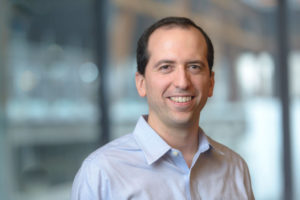
CEDSS: “Building a Scalable Clinical Genomics Program: How tumor, normal, and plasma DNA sequencing are informing cancer care, cancer risk, and cancer detection”
Elizabeth and Felix Rohatyn Chair & Associate Director of the Marie-Josée and Henry R. Kravis Center for Molecular Oncology
Memorial Sloan Kettering Cancer Center
Zoom Details
Meeting URL: https://stanford.zoom.us/s/92559505314
Dial: US: +1 650 724 9799 or +1 833 302 1536 (Toll Free)
Meeting ID: 925 5950 5314
Passcode: 418727
11:00am – 12:00pm Seminar & Discussion
RSVP Here
ABSTRACT
Tumor molecular profiling is a fundamental component of precision oncology, enabling the identification of oncogenomic mutations that can be targeted therapeutically. To accelerate enrollment to clinical trials of molecularly targeted agents and guide treatment selection, we have established a center-wide, prospective clinical sequencing program at Memorial Sloan Kettering Cancer Center using a custom, paired tumor-blood normal sequencing assay (MSK-IMPACT), which we have used to profile more than 50,000 patients with solid tumors. Yet beyond just the characterization of tumor-specific alterations, the inclusion of blood DNA has readily enabled the identification of germline risk alleles and somatic mutations associated with clonal hematopoiesis. To complement this approach, we have also implemented a ‘liquid biopsy’ cfDNA panel (MSK-ACCESS) for cancer detection, surveillance, and treatment selection and monitoring. In my talk, I will describe the prevalence of somatic and germline genomic alterations in a real-world population, the clinical benefits of cfDNA assessment, and how clonal hematopoiesis can inform cancer risk and confound liquid biopsy approaches to cancer detection.
ABOUT
Michael Berger, PhD, holds the Elizabeth and Felix Rohatyn Chair and is Associate Director of the Marie-Josée and Henry R. Kravis Center for Molecular Oncology at Memorial Sloan Kettering Cancer Center, a multidisciplinary initiative to promote precision oncology through genomic analysis to guide the diagnosis and treatment of cancer patients. He is also an Associate Attending Geneticist in the Department of Pathology with expertise in cancer genomics, computational biology, and high-throughput DNA sequencing technology. His laboratory is developing experimental and computational methods to characterize the genetic makeup of individual cancers and identify genomic biomarkers of drug response and resistance. As Scientific Director of Clinical NGS in the Molecular Diagnostics Service, he oversees the development and bioinformatics associated with clinical sequencing assays, and he helped lead the development and implementation of MSK-IMPACT, a comprehensive FDA-authorized tumor sequencing panel that been used to profile more than 60,000 tumors from advanced cancer patients at MSK. The resulting data have enabled the characterization of somatic and germline biomarkers across many cancer types and the identification of mutations associated with clonal hematopoiesis. Dr. Berger also led the development of a clinically validated plasma cell-free DNA assay, MSK-ACCESS, which his laboratory is using to explore tumor evolution, acquired drug resistance, and occult metastatic disease. He received his Bachelor’s Degree in Physics from Princeton University and his Ph.D. in Biophysics from Harvard University.
Hosted by: Utkan Demirci, Ph.D.
Sponsored by: The Canary Center & the Department of Radiology
Stanford University – School of Medicine
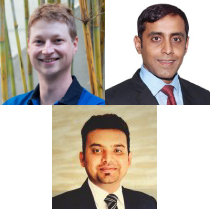
MIPS Special Seminar: Jubilant Biosys: Drug discovery and contract research services, from target discovery to candidate selection
Thomas Haywood, PhD
Head of International Radiochemistry Collaborations
Stanford University
Saurabh Kapure, MBA
Vice President, Business Development (USA & APAC)
Jubilant Biosys Limited
Jay Sheth, MBA
Manager Business Development, Drug Discovery Services, and CDMO
Jubilant Biosys Limited
LOCATION: Zoom
Meeting URL: https://stanford.zoom.us/j/98108346345
Dial: +1 650 724 9799 or +1 833 302 1536
Meeting ID: 981 0834 6345
Passcode: 397741
9:00-9:15 AM, PT – Thomas Haywood – Stanford Radiology projects
9:40-10:00 AM, PT – Moderated by Jason Thanh Lee – Discussion
ABOUT
Jubilant Biosys, an integrated contract research organization in India with business offices in Asia and North America, is a leading collaborator for biotechnology and pharmaceutical companies, with in-depth expertise in discovery informatics, medicinal chemistry, structural biology, and in vitro pharmacology services. Jubilant Biosys provides comprehensive drug discovery services and contract research services, from target discovery to candidate selection and with flexible business models (FFS, FTE and risk shared). This seminar will showcase case studies from recent Stanford projects and a discussion of future opportunities.
Sponsored by: Molecular Imaging Program at Stanford, Department of Radiology
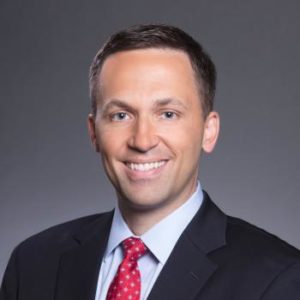
MIPS Seminar Series: Image-guided focal therapy for prostate cancer
Geoffrey Sonn, MD
Assistant Professor of Urology and, by courtesy, of Radiology (Molecular Imaging Program at Stanford)
Stanford University Medical Center
Location: Zoom
Webinar URL: https://stanford.zoom.us/s/96126703618
Dial: +1 650 724 9799 or +1 833 302 1536
Webinar ID: 961 2670 3618
Passcode: 186059
12:00pm – 12:45pm Seminar & Discussion
RSVP Here
ABSTRACT
In recent years, prostate cancer treatment has increasingly focused on selecting patients who are most likely to benefit and reducing harms from treatment. This has been seen both in adoption of active surveillance for men with low-risk prostate cancer and emergence of image-guided focal ablative therapy. While focal therapy causes fewer sexual and urinary side effects than conventional prostate cancer treatments, many questions remain about proper patient selection, treatment planning, and follow up care.
Improvements in prostate MRI performance and interpretation have paved the way for adoption of focal therapy. However, clinical challenges remain in prostate cancer imaging. This talk will describe prostate cancer focal therapy, discuss patient selection, and highlight the research efforts of my group to improve MRI interpretation to guide biopsy and improve focal therapy performance.
ABOUT
Geoffrey Sonn, MD is a urologic oncologist who specializes in treating patients with prostate and kidney cancer. He has a particular interest in cancer imaging, MRI-Ultrasound fusion targeted prostate biopsy, prostate cancer focal therapy, and robotic surgery for prostate and kidney cancer. He is the principal investigator of the first clinical trial in Northern California to use MRI-guided focused ultrasound to treat prostate cancer. The goal of this trial is to treat prostate cancer with fewer side effects than surgery or radiation.
Dr. Sonn was born in Washington State and lived there until leaving for college at Georgetown. After graduating magna cum laude at Georgetown he returned to the West Coast for medical school at UCLA. Following medical school, Dr. Sonn completed a 6-year urology residency at Stanford where he developed particular interests in the clinical care of patients with urologic cancers and research in cancer imaging. Dr. Sonn completed a 2-year urologic oncology fellowship at UCLA. Since completing his fellowship, Dr. Sonn has been at Stanford as an assistant professor in urology. Dr. Sonn’s research is devoted to developing new cancer imaging techniques, applying artificial intelligence to find cancers on medical images, and applying new methods to treat prostate cancer with fewer side effects.
Hosted by: Katherine Ferrara, PhD
Sponsored by: Molecular Imaging Program at Stanford & the Department of Radiology
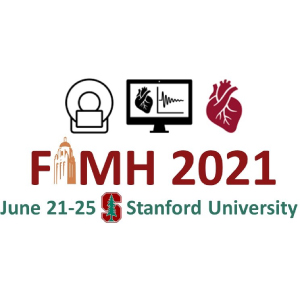
Join us for the 11th biennial International Conference on Functional Imaging and Modeling of the Heart (FIMH). FIMH-2021 will celebrate 20 years of bringing together friends, colleagues, and collaborators to share and discuss the latest in cardiac and cardiovascular imaging, electrophysiology, computational modeling, and translational applications. The event will take place June 21-25, 2021 virtually, via Livestream, Zoom meeting workshops, and Spatial Chat networking.
Sponsored by: Functional Imaging and Modeling of the Heart Conference
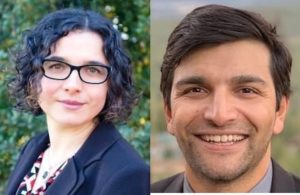
Radiology Department-Wide Research Meeting
• Research Announcements
• Mirabela Rusu, PhD – Learning MRI Signatures of Aggressive Prostate Cancer: Bridging the Gap between Digital Pathologists and Digital Radiologists
• Akshay Chaudhari, PhD – Data-Efficient Machine Learning for Medical Imaging
Location: Zoom – Details can be found here: https://radresearch.stanford.edu
Meetings will be the 3rd Friday of each month.
Hosted by: Kawin Setsompop, PhD
Sponsored by: the the Department of Radiology
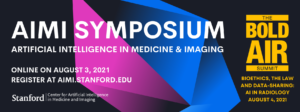
Stanford AIMI Director Curt Langlotz and Co-Directors Matt Lungren and Nigam Shah invite you to join us on August 3 for the 2021 Stanford Center for Artificial Intelligence in Medicine and Imaging (AIMI) Symposium. The virtual symposium will focus on the latest, best research on the role of AI in diagnostic excellence across medicine, current areas of impact, fairness and societal impact, and translation and clinical implementation. The program includes talks, interactive panel discussions, and breakout sessions. Registration is free and open to all.
Also, the 2nd Annual BiOethics, the Law, and Data-sharing: AI in Radiology (BOLD-AIR) Summit will be held on August 4, in conjunction with the AIMI Symposium. The summit will convene a broad range of speakers in bioethics, law, regulation, industry groups, and patient safety and data privacy, to address the latest ethical, regulatory, and legal challenges regarding AI in radiology.
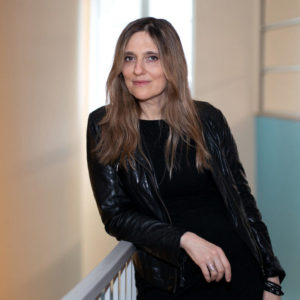
Regina Barzilay, PhD
School of Engineering Distinguished Professor for AI and Health
Electrical Engineering and Computer Science Department
AI Faculty Lead at Jameel Clinic for Machine Learning in Health
Computer Science and Artificial Intelligence Lab
Massachusetts Institute of Technology
Abstract:
In this talk, I will present methods for future cancer risk from medical images. The discussion will explore alternative ways to formulate the risk assessment task and focus on algorithmic issues in developing such models. I will also discuss our experience in translating these algorithms into clinical practice in hospitals around the world.
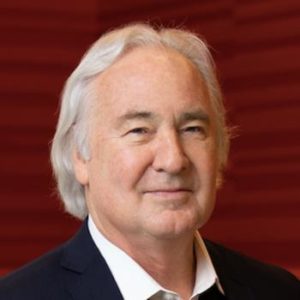
MIPS Seminar Series: Predicting and Preventing Fetal and Neonatal Pathology: Looking Back and Looking Forward
David K. Stevenson, MD
The Harold K. Faber Professor of Pediatrics, Senior Associate Dean, Maternal and Child Health and Professor, by courtesy, of Obstetrics and Gynecology
Lucile Packard Children’s Hospital
Zoom Webinar Details
Webinar URL: https://stanford.zoom.us/s/94584828060
Dial: +1 650 724 9799 or +1 833 302 1536
Webinar ID: 945 8482 8060
Passcode: 481874
12:00pm – 12:45pm Seminar & Discussion
RSVP Here
ABSTRACT
The importance of minimally invasive technologies for interrogating the fetus and newborn, as well as of knowing where a biologic system is headed, not just where it has been, when trying to predict and prevent acquired diseases, will be discussed. Examples of such technologies, such as trace gas analysis and optical reporting of biologic phenomena, and their application to model systems and the human newborn will be presented. The role of advanced computational approaches for the integration and interpretation of large amounts of data derived from these new measurement tools will be emphasized.
ABOUT
Dr. David K. Stevenson is the Harold K. Faber Professor of Pediatrics and has made many impactful contributions to the field of neonatology and pediatrics, including his seminal studies on neonatal jaundice, bilirubin production and heme oxygenase biology. As a neonatologist, his research has focused primarily on neonatal jaundice and more recently on the causes of preterm birth and its prevention. He has held numerous leadership roles at Stanford University School of Medicine, including Vice Dean and Senior Associate Dean for Academic Affairs. He is currently the Senior Associate Dean for Maternal & Child Health, the Co-Director of the Stanford Maternal & Child Health Research Institute, and the Principal Investigator for the March of Dimes Prematurity Research Center at Stanford University. Dr. Stevenson has received many awards, including the Virginia Apgar Award, which is the highest award in Perinatal Pediatrics, the Joseph W. St. Geme, Jr. Leadership Award from the Federation of Pediatric Organizations, the Jonas Salk Award for Leadership in Prematurity Prevention from the March of Dimes Foundation, and the John Howland Medal and Award, the highest award in academic pediatrics. He has served as the President of the American Pediatric Society. In recognition of his achievements, Dr. Stevenson is a member of the National Academy of Medicine.
Hosted by: Katherine Ferrara, PhD
Sponsored by: Molecular Imaging Program at Stanford & the Department of Radiology
Keynote:
Self-Supervision for Learning from the Bottom Up
Why do self-supervised learning? A common answer is: “because data labeling is expensive.” In this talk, I will argue that there are other, perhaps more fundamental reasons for working on self-supervision. First, it should allow us to get away from the tyranny of top-down semantic categorization and force meaningful associations to emerge naturally from the raw sensor data in a bottom-up fashion. Second, it should allow us to ditch fixed datasets and enable continuous, online learning, which is a much more natural setting for real-world agents. Third, and most intriguingly, there is hope that it might be possible to force a self-supervised task curriculum to emerge from first principles, even in the absence of a pre-defined downstream task or goal, similar to evolution. In this talk, I will touch upon these themes to argue that, far from running its course, research in self-supervised learning is only just beginning.